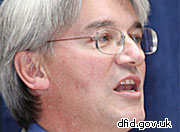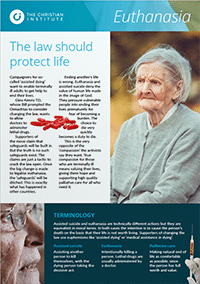Government proposals which appear to link the provision of abortion services with international development aid have been criticised by Roman Catholic bishops.
The criticism came the day before the closure of a Department for International Development (DFID) consultation entitled Choice for Women: Wanted Pregnancies, Live Births.
DFID says one of its key proposals is ensuring access to contraception and “safe” abortions.
Impose
However, the bishops object to the Government tying the provision of contraception and abortion services to international aid.
A spokesman for the Bishops’ Conference of England and Wales said: “It is a scandal that hundreds of thousands of women die in childbirth every year.”
The spokesman added: “It is deeply regrettable, however, that the DFID has tied this urgent issue to the quite different goal of ‘wanted pregnancies’ that is, to the reduction of pregnancy rates in the developing world through provision of contraception and, explicitly, of abortion.
Agendas
“The Church urges the DFID to distinguish between these two very different agendas of ‘wanted pregnancies’ and ‘safe births’.”
However, a DFID spokeswoman has said there were “no suggestions” that the Government would impose abortion and contraception as a condition for foreign aid.
Andrew Mitchell, the Secretary of State for International Development, said: “The UK Government doesn’t enter the ring on the rights and wrongs of abortion. But the fact is that nearly 70,000 women in the developing world die every year as a result of unsafe abortions – and millions more risk their lives.
“Giving women the power over whether and when they have children is one of my top priorities. The UK Government will not stand by and let women die needlessly in pregnancy and childbirth.”
Abortions
Earlier this year the Department released a statement which appeared to indicate that a key focus of the new policy would be to combat unsafe abortions.
It said: “Every year unsafe abortion results in up to 70,000 maternal deaths in developing countries. A further 8 million women and girls need medical treatment. Only 5 million receive it.
“Ensuring abortion services are safe, and that post abortion care is provided, saves lives.”
Deaths
At the time Anthony Ozimic, Communications Manager at the Society for the Protection of Unborn Children, said: “There is absolutely no truth to the claim that increasing access to abortion will prevent the deaths of mothers and newborns.
“Abortion is not healthcare but an attack on life. Abortion doesn’t treat the real reasons why a mother’s life or health may be in danger.”
In June it was disclosed that millions of pounds of British taxpayers’ money will continue to fund abortions in developing countries, after David Cameron ordered that DFID’s budget be protected from any cuts.
Attacked
Critics attacked such a use of public money, and questioned why money intended for abortions should receive special protection at a time when other budgets are being slashed.
A question by the Conservative MP David Amess revealed that a large proportion of the Department’s abortion funding had been earmarked for the controversial abortion provider Marie Stopes International (MSI).
The decision outraged critics.
Appalled
Jim Dobbin, a Labour MP and long standing pro-lifer, said: “I am very much against this use of public money. This is not appropriate spending and it should not be protected.
“I do not see why it is necessary to preserve spending like this on sexual education and abortion.”
And David Amess also attacked this use of public funds, saying: “I am appalled that our money is being directed towards this end. We have the most challenging economic climate, and we are seeing our money going to aid abortion overseas.”


